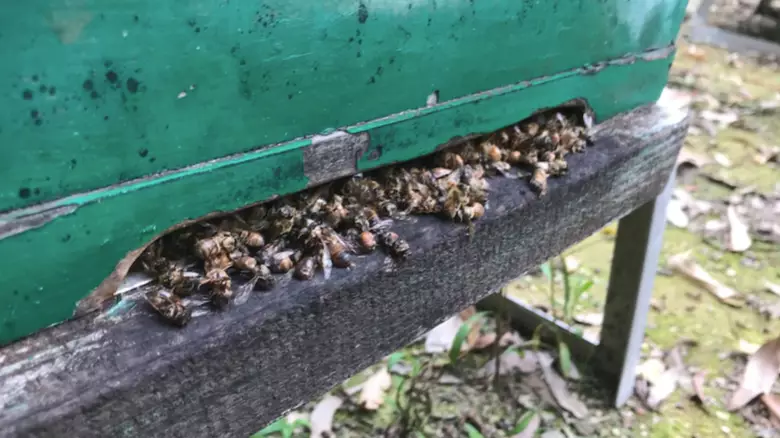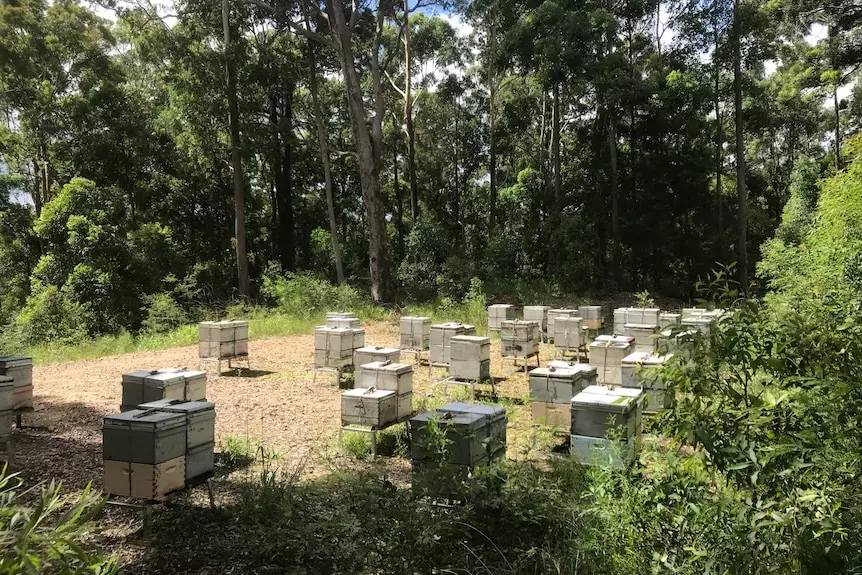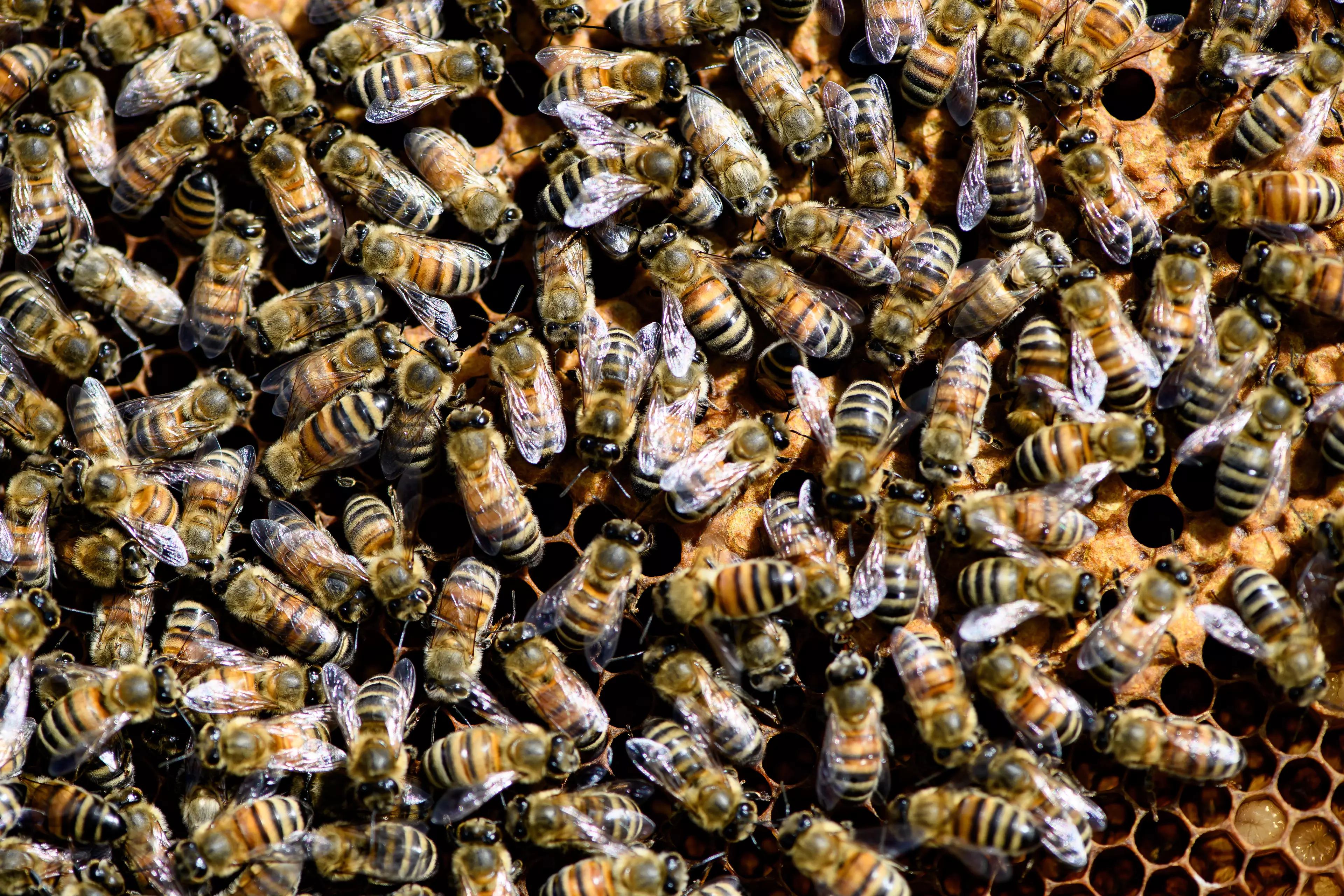
Police are hunting for the person responsible for dousing multiple beehives in a petrol-like chemical in New South Wales.
The criminal has targeted 70 bee colonies in the Nana Creek State Forest, northwest of Coffs Harbour.
It's led to hundreds of thousands of bees dying and authorities have been left speechless by the senseless attack on nature's pollinators.
Advert
Rural Crime Detective Travis Ware told the ABC they believe it was a targeted attack and have been investigating the incident since March.
"I've been in the region now for a number of years, but I haven't seen anything of this nature and not aware of anything else remotely similar, to be honest," he said.
"To build a colony back up to full production can take a significant period of time so that site is rendered pretty much useless.
"We are now appealing for any information the public may have."
Advert

Photos show the horrifying outcome of the attack, with lifeless little bee bodies seen flowing out of their hives.
But while Rural Crime Detective Travis Ware saying he'd never seen this sort of behaviour, it technically isn't new to the region.
NSW Apiarist Association North Coast president Stephen Fuller said there has been a lot of suspicious activity over the years and they've been seemingly powerless to fully stop it.
Advert
He also told the national broadcaster it's ranged from hive damage to straight up bee massacres.
"It's something we are dealing with as an industry the poisoning of occasion but we're getting on top of it," he said.
"It's not that often you see a poisoning of this scale using petrol...it used to happen a few years ago but it has settled down since.
"When beehives are in such a decline it's the last thing we want to hear."
Advert

It's a massive blow after last year's horrific Black Summer bushfires wiped out around 2.5 billion bees and 10,000 commercial beehives in New South Wales and Victoria.
It's a statistic that has far wider implications for our biodiversity than just that shocking number of animal deaths.
But thanks to epic rainfall over the past 12 months and a huge international effort to pump up bee numbers, the little buzzing cogs of our ecosystem are coming back in big numbers.
Advert
Aussie organisations like Bee Day Australia and international groups such as the UK's Natural Beekeeping Trust rallied following the fires to help local beekeepers build from the ashes.
They armed locals with enough knowledge of how to create log hives inside trees to get them buzzing again.
Featured Image Credit: NSW Police Rural Crime Prevention TeamTopics: Australia